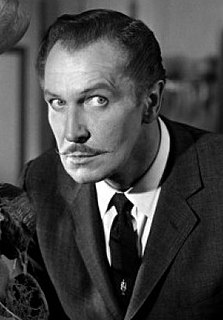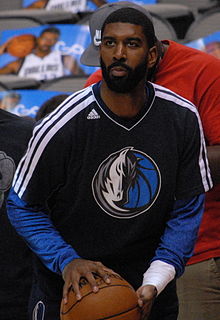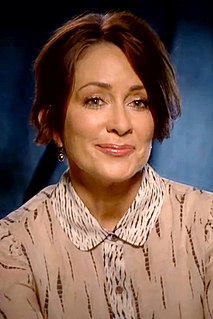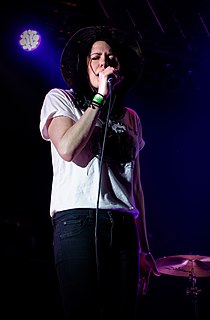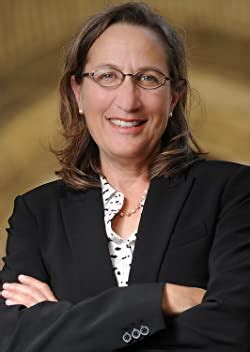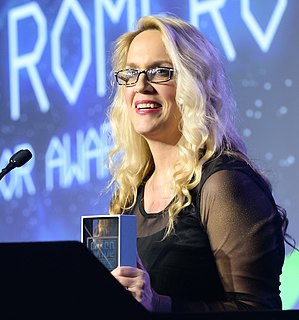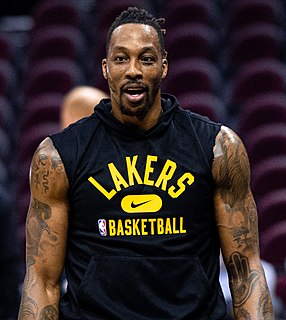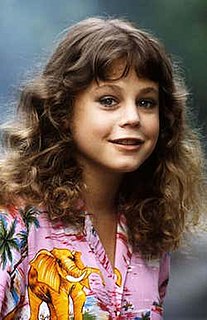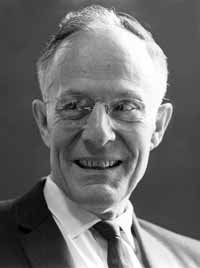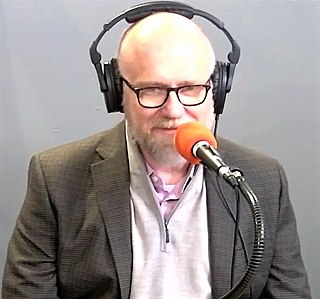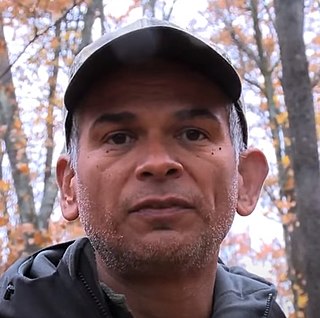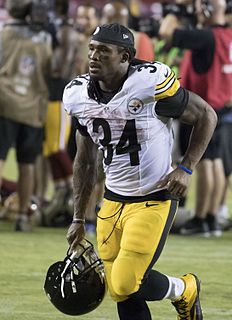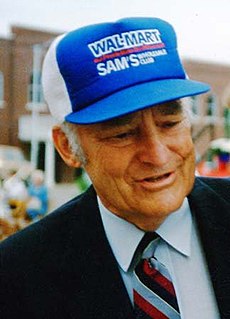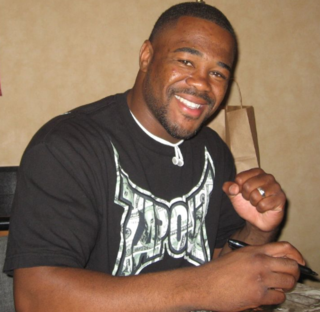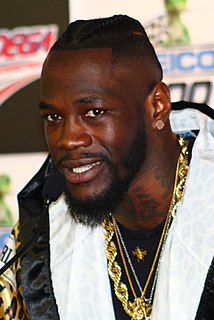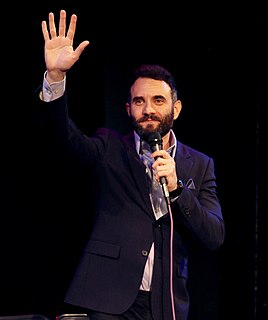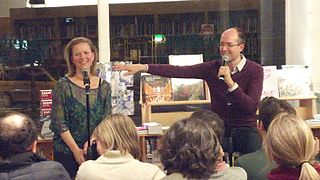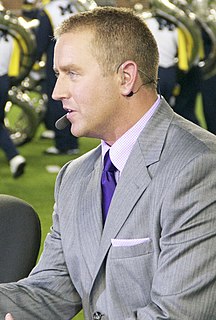Top 1200 College Campus Quotes & Sayings - Page 2
Explore popular College Campus quotes.
Last updated on April 15, 2025.
I was never educated to be an actor. I went to a regular college. It was a great thing for me because I feel that the main thing to get out of college is a thirst for knowledge. College should teach you how to be curious. Most people think that college is the end of education, but it isn't. The ceremony of giving you the diploma is called commencement. And that means you are fit to commence learning because you have learned hot to learn.
The early feminists were pro-life. And really, abortion is a huge disservice to women, and it hasn't been presented that way. As Feminists for Life-what we're trying to do is support women, and so what we want to do is-reach women on campus-college campuses so that, when they get pregnant, they can find housing. They can find money they need to stay in school.
We want to build the most entrepreneurial postsecondary system in North America. That's why we're pleased that academic institutions, like Algonquin College, University of Ottawa and Carlton University are working to make that happen through the Campus-Linked Accelerator program. They are helping nurture our business visionaries and igniting their entrepreneurial spirit, helping them to succeed and to expand our economy.
There are always groups on campus that are doing amazing things. I know when I was in college, I was a student at the University of Arizona, working on my bachelor's in history, and I got involved with a number of different groups that were connected to different social justice issues that I cared about.
We've been told by the people on the other side who don't like the campus sexual assault movement that these are all "he-said, she-said" cases. Quite rightly, they say campus procedures are often very flawed, the investigation methods are not that good, and we aren't sure what we can trust. [Opponents say that] it seems like a lot to call somebody a rapist if they haven't gone to a criminal trial.
Addressing the Columbia crew after winning the intercollegiate regatta: I congratulate you most heartily upon the splendid victory you have won, and the luster you have shed upon the name of Columbia College. I thank you for the Faculty of the College, for the manifest service you have done to this institution. . . . I am convinced that in one day or in one summer, you have done more to make Columbia College known than all your predecessors have done since the foundation of the college by this, your great triumph.
College football is no more of a minor league than, say, the universities' schools of journalism, engineering or music are. We can argue at another time whether football should occupy the same space on campus as those disciplines, but for now, it does. The critical point is that a coach is less concerned with preparing athletes for the next level than he is with molding them to fit a system that helps him win games, keep his job and, eventually, move on to a position with a more prestigious program.
Wherever you go, whether it be a college campus or the New York Times or ABC News or Venezuela or Cuba or the former Soviet Union, it's amazing how the speech codes and the trying to shut up dissent is a defining aspect of the left because they believe so firmly in their utopian ideals that anyone who would disagree with that utopia is an enemy of the state, and they treat them as such.
And once I was in college, about - maybe the end of my first semester of my sophomore year, I realized that college just was not my jam and that I felt like I was learning more when is actually on set. And I think a lot of that had to do with - I was working while I was in college. I was on "227," so I didn't get a chance to really be immersed in the culture of my school.
College radio is a very important medium that needs to survive in difficult economic times when some stations are being sold off and shut down. College radio is the future for broadcasting stars and pioneers of tomorrow, and we as a band, Coldplay, support the vital mission of college radio and we also support College Radio Day, the day when college radio comes together.
As much as progressives hate the Electoral College - and we can argue its flaws all day long - in 2020, the Electoral College is the only game in town. There's not going to be some miracle where it's not the rule book. The winner of the Electoral College is president. Doesn't matter how many popular votes you get.
We were very excited and we brought speakers in ? then it so happened that there was a marine recruiter in the center of campus and one of our brothers, one SDS person put up a sign with a quote from the Nuremberg trial and an arrow point at the marine recruiter, saying, "This man is a war criminal." My younger brother and I, he was freshman and I was a sophomore, got caught up in the debates that were swirling around the center of campus and the young Trotskyists had put out a fact sheet on Vietnam that was phenomenal.
When you're going to school primarily for career purposes, it's more important to focus on which program is best for you. In addition, your success at college depends far more on what you do at the college than at which college you do it: Choosing the right program, then the right advisor, the right courses, the right term papers, the right co-curricular activities, the right fieldwork, the right internships. You can make those choices at any college.
In college, I'd gone abroad to get away from a campus where I felt I didn't fit in. And I started writing fiction, at least in part, because it was a way to feel like I was around people, to feel the energy and hum of others' inner lives, without the real-time frustrations and difficulties of actual relationships.
Having grown up in the theater family, having done a huge amount of acting from a very little boy to precocious teenager in Shakespeare festivals that my father produced, I went off to college and fell in with the theater gang. I was already an experienced actor. I became a kind of campus star. I heard all this applause and laughter.
I really think, if anything, there is more evidence to show that the violent games reduce aggression and violence. There have actually been some studies about that, that it's cathartic. If you go to QuakeCon and you walk by and you see the people there [and compare that to] a random cross section of a college campus, you're probably going to find a more peaceful crowd of people at the gaming convention. I think it’s at worst neutral and potentially positive.
I learned early on that one of the secrets to campus leadership was the simplest thing of all: speak to people coming down the sidewalk before they speak to you. I did that in college. I did it when I carried my papers. I would always look ahead and speak to the person coming toward me. If I knew them, I would call them by name, but even if I didn't I would still speak to them. Before long, I probably knew more students than anybody in the university, and they recognized me and considered me their friend.
When I went to college, I went to a junior college. I wanted to go to the University of Alabama but had to go to junior college first to get my GPA up. I did a half-year of junior college, then dropped out and had my daughter. College was always an opportunity to go back. But she, my daughter, was my support. I gave up everything for her.
What else is stop and frisk? These neighborhoods are unsafe not because there's not enough cops illegally frisking people. They're not safe because of economic conditions. They're not safe because of all types of things in the government that people like Mike Bloomberg and Ray Kelly should be looking to fix instead of randomly searching kids in the hood. If you go to a college campus and you do stop and frisk, you're going to find a lot of drugs there, too.
One must recently have lived on or close to a college campus to have a vivid intimation of what has happened. It is there that we see how a number of energetic social innovators, plugging their grand designs, succeeded over the years in capturing the liberal intellectual imagination. And since ideas rule the world, the ideologues, having won over the intellectual class, simply walked in and started to run things. Run just about everything. There never was an age of conformity quite like this one, or a camaraderie quite like the Liberals'.
One day at Princeton, I noticed there were dead birds on the pavement between the campus buildings, where very large trees were. It turns out it was DDT. At the time, in the early '50s, no one thought DDT was dangerous to anybody but insects. I went down to the Daily Princetonian, the college paper, and tried to persuade them to do a story. They said, "Naw, there's nothing wrong." But that taught me a very important lesson. One, that newspaper people can get very jaded. Second, that you might know something, like an expert chemistry professor, you are not going to apply what you know.
The saving of empty beer and liquor bottles is a strange college phenomenon. I bet most of you college students reading this right now have some empties on a shelf in your room. Everyone knows how much college kids like to drink, do we really need to display it? It's a good thing, though, that this trend stops after college. Wouldn't it be weird if your parents had empty wine bottles up on their bedroom wall?
When I look at what I'm doing today, I see [the] roots in my college life. I was the online editor of my college paper and an active member of the Harvard Computer Society. I abandoned a summer internship at the Washington Post due to injury and instead did theatre. I found my comedic voice through satirical newsletters in college.
In 1996, we go on the road and there would be a couple of hundred people around the desk. It just kept growing and growing. I think the year it changed was when Michael Vick was at Virginia Tech and Frank Beamer was the first coach to recognize the benefit of having College GameDay come to your campus.
Usually when you ask somebody in college why they are there, they'll tell you it's to get an education. The truth of it is, they are there to get the degree so that they can get ahead in the rat race. Too many college radicals are two-timing punks. The only reason you should be in college is to destroy it.
My personal beliefs were shaped more by experience and by watching the news when I was young: images of angelic-looking college students in Mississippi crying like the world was ending because black people were being allowed on their campus; the slow mounting horror of Vietnam on the evening news every night; sitting with my parents in front of the TV and being appalled at the way the Chicago police were treating the protesters during the '68 Democratic convention. Being eyed with suspicion because of my age and the way I wore my hair.
If my life is any example, the work that youth workers are doing is very, very important. It tends to get marginalized in the church or seen as less important than being a senior minister in a large, prosperous congregation; but I don't believe that for a minute. I think this is absolutely critical work in the life of the church; and I think my path in life would have been much different if it hadn't been for my youth minister, Burt Randle, and a series of campus ministers in both college and graduate school.
These days, because women are so active on social media, it is important to be active on the sites of social media that represent the right value system. If you are a student on campus, be part of action groups that exist on campus. The worst thing that can happen to a young person is to be young and not be part of anything that is bigger than you. I think that it's such a missed opportunity, because the future depends on those who walk an extra mile in order to make sure that the world will be better because they have lived in it.
Students throughout the totalitarian world risk life and limb for freedom of expression, many American college students are demanding that big brother restrict their freedom of speech on campus. This demand for enhanced censorship is not emanating only from the usual corner - the know-nothing fundamentalist right - it is coming from the radical, and increasingly not-so-radical left as well.
Our mission at Khan Academy is a free, world-class education for anyone, anywhere, and college readiness is a crucial part of that. We want to help as many students as possible prepare for college and for life, and since the SAT measures preparedness for college, our partnership with the College Board is a natural fit.
The College Athlete Right to Organize Act is the first step in bringing college sports into the 21st century by ensuring college athletes have the right to collectively bargain across teams and conferences, and that they are able to advocate for rights, protections, and compensation commensurate with the value they undeniably provide.
